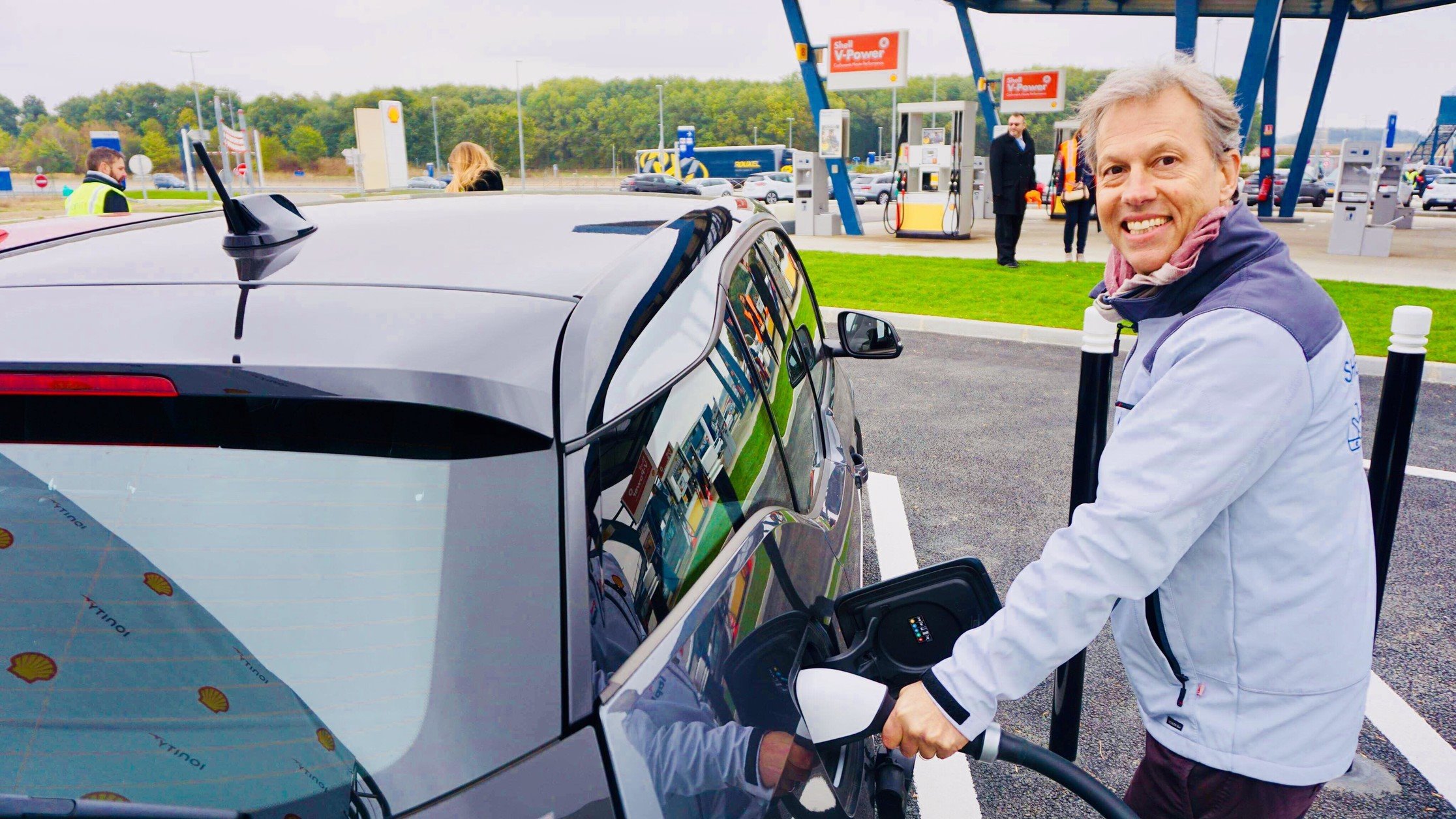
Shell is committed to mobility and convenience and it’s a three-pronged approach. That’s according to David Bunch, Group Executive Vice President for Shell’s global mobility and convenience business.
Bunch was appointed to the role in June 2024 following a 25-year career with Shell, largely in retail mobility and convenience but spanning operations, network and GM roles across the world. Prior to his latest appointment, Bunch was country chairman for Shell UK with corporate responsibility for Shell’s end-to-end footprint, representing the business with Government in the energy transition and drive to net zero.
“I’m lucky to have had such varied experience – each role has had unique challenges and it’s been a continuous learning journey that has equipped me well for the fast pace of change we are operating in today,” he says.
Today, Bunch manages the world’s largest mobility and convenience retailer with a global footprint in 80 markets and a network of 47,000 retail fuel and convenience sites, serving 33 million customers every day.

Three pronged focus
Shell has scrutinised its footprint, offer and customer base and has honed in on three major strands, Bunch says. These are:
A focus on seven energy transition priority markets: the USA , China, the UK, Netherlands, Germany, Switzerland and Singapore.
“That’s not to say other markets are not important but we are focusing our energy transition capital and resources where we believe we have the strongest right to win and can generate a competitive return for shareholders and grow c Store propositions for customers,” Bunch says.
The customer offer, which has been subtly rebranded as a mobility and convenience business.
According to Bunch, this move recognises that 50% of Shell’s profitability comes from convenience and that convenience and mobility go hand in hand.
It also includes expanding the fresh food component of the offer and employment of new tech, as well as updates to loyalty programs to ensure Shell has good interaction and intimacy with customers to deliver what they want and when they want it but in a more efficient way.
Shell aims to strengthen its local connect by bolstering its front line customer-facing market divisions, investing in talent and development, to bring more empowerment into country structures.
Bunch says this move acknowledges Shell is a global business but can meet customer needs more efficiently in local markets.

Supplier partnerships will be relevant in all three strands, Bunch adds.
This is key for Bunch who, in a former role, initiated Shell’s Global Growth Forum, a series of events that has enabled Shell to leverage its unique global scale by sharing best practices and communicating its convenience retail strategy with supplier partners and Shell CR teams globally.
“Key supplier relationships are integral to the innovation we can bring to the stores and, the better they understand our strategy, the easier it is for them to innovate – and we want to be first in line to partner in that innovation,” he says.
“Way back, it was our ambition to increase the profit contribution of non-fuel to 50%, in recognition of the increasing role of convenience, and we’ve largely met that ambition,” Bunch says.
While Shell has identified seven energy transition priority markets, which are ahead in terms of energy transition and have more advanced convenience channels, other markets are beginning to mature and will create a second tranche of focus and investment, Bunch says.
These include countries such as Malaysia, Canada and the Philippines, where Shell has a leading brand position, significant scale and a market-competitive fuel supply strength through it’s trading and supply capabilities.